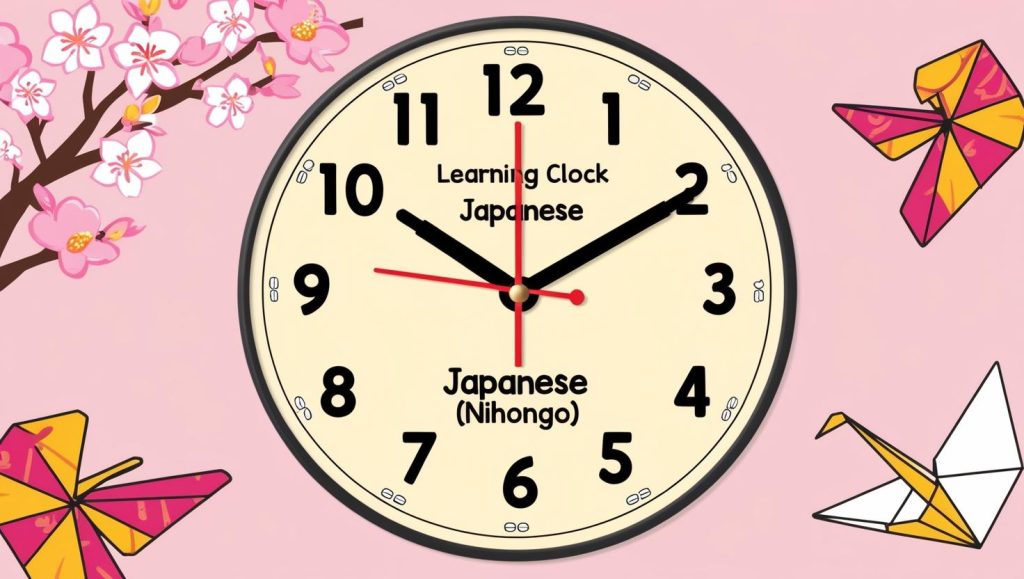
Today, we will learn how to ask and tell the time in Japanese using basic sentence patterns.
Practice speaking naturally when asking for the time or scheduling an activity.
Some Notes You Need to Know About In Japan
I think you should know some warning relate to time first before learning anything relate to time, this is some tip for you if you want to get use into Japan :
- Being on time means being early.
Arriving exactly on time is good, but in Japan, arriving 5–10 minutes early is even better. It shows respect and readiness. Singapore and VietNam is ok 🫡 - Punctuality is professionalism.
Whether it’s for work, school, or social meetings, being punctual is a sign of responsibility and trustworthiness. This also apply to anywhere. - Trains don’t wait.
Japanese trains are famous for their precise schedules. Even a 1-minute delay is unusual and often announced with an apology. I’m really shock about this when I’m first time come to Japan 🤨 - Apologize if late, even by a little.
If you are late, even by 2–3 minutes, say:
「おくれてすみません。」Okurete sumimasen. (Sorry for being late.) - Being late can damage relationships.
In Japan, showing up late, especially without notice, can be seen as disrespectful or careless, both in work and social life. - Time is part of harmony (和 | wa).
Respecting time helps maintain harmony in group settings, which is a key value in Japanese culture.
How easy to lean Time in Japanese ?
- You need to know how to speak number first : 1,2,3,4,3….
| Number | Hiragana | Romaji |
|---|---|---|
| 1 | いち | ichi |
| 2 | に | ni |
| 3 | さん | san |
| 4 | よん | yon |
| 5 | ご | go |
| 6 | ろく | roku |
| 7 | なな | nana |
| 8 | はち | hachi |
| 9 | きゅう | kyuu |
| 10 | じゅう | juu |
2. Learn pattern how to use hours
[Hour] じ
Example : いちじ > 1 hour
3. Learn when to use じゅん(pun) or ふん(fun) for minutes
| Type | 1 | 3 | 5 | 7 | 2 | 4 | 6 | 8 |
|---|---|---|---|---|---|---|---|---|
| ぷん (pun) | ✅ | ✅ | ❌ | ❌ | ❌ | ✅ | ✅ | ✅ |
| ふん (fun) | ❌ | ❌ | ✅ | ✅ | ✅ | ❌ | ❌ | ❌ |
Explanation:
- Use ぷん (pun) for: 1, 3, 4, 6, 8, 10
- Use ふん (fun) for: 2, 5, 7, 9
For easy remember I remember 5 and 10 += 5:
- Every number%2 =1 meaning > ふん (fun) > 5 15 25 35 45 55
- Every number%2=0 meaning > ぷん (pun) > 10 20 30 40 50
4. Make full sentence
[Hour] じ + [Minute] ふん / ぷん
e.g :
- いちじ じゅっぷん(Ichi-ji juppun) > 1 hours 10 minutes
- にじゅうごふん (niji juugofun) > 2 hours 15 minutes
- いちじ にじゅっぷん(Ichi-ji nijuppun) > 1 hours 20 minutes
Ok now , let’s start again with overall process after you get the basic 😂😂. I’m start panic right now.
In Japanese, “Time and Hours” is written as:
時間と時刻
- Kanji: 時間と時刻
- Hiragana: じかん と じこく
- Romaji: jikan to jikoku
- English meaning: “Time and Hours” (or “Time and Clock Time”)
Fun Vocabulary Time! (単語 | たんご):
| Japanese | Romaji | English | Vietnamese |
|---|---|---|---|
| いま | ima | now | bây giờ |
| なんじ | nanji | what time | mấy giờ |
| ~じ | ~ji | ~ o’clock | ~ giờ |
| ~はん | ~han | half past ~ | ~ rưỡi |
| ごぜん | gozen | AM | buổi sáng |
| ごご | gogo | PM | buổi chiều/tối |
| もう | mō | already | đã |
Sample Conversation (会話 | かいわ | hội thoại):
A: すみません、いま なんじですか?
Romaji: Sumimasen, ima nanji desu ka?
Tiếng Việt: Xin lỗi, bây giờ là mấy giờ vậy?
English: Excuse me, what time is it now?
B: ごご8じはんです!
Romaji: Gogo hachi-ji han desu!
Tiếng Việt: Là 8 giờ rưỡi tối!
English: It’s 8:30 PM!
A: えっ!もうそんな時間!?
Romaji: Ehh! Mō sonna jikan!?
Tiếng Việt: Hả!? Đã giờ đó rồi á!?
English: What!? It’s already that late!?
Listening Quiz!
またあした 🫡 おやすみ !